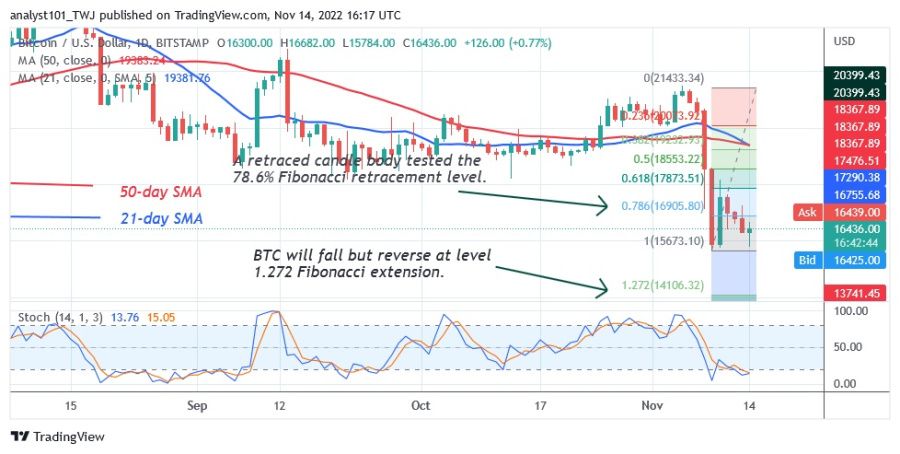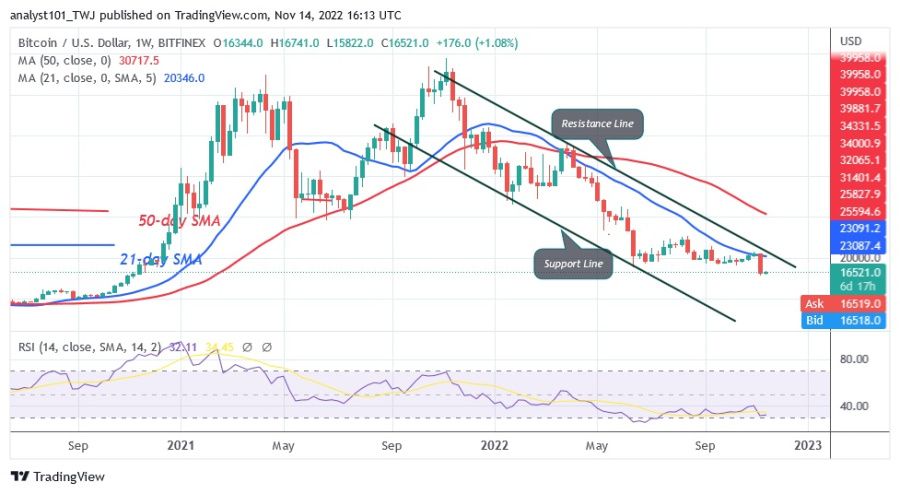Bitcoin Recovers Above $16,800 as It Resumes Fluctuations
Bitcoin (BTC) is in a downtrend as it retested the area of support twice. Since November 9, the bitcoin price has fluctuated only within a small range between $15,500 and $18,150.
Currently, sellers dare to break the support but pull back. The bitcoin price fell to a low of $15,588 on November 9 before recovering. After falling to a low of $15,822, the bitcoin price is moving back up. If the sellers break the existing support, the BTC price will fall to $14,100. On the other hand, if it recovers and breaks through the resistance levels at $17,605 and $18,210, Bitcoin will resume its uptrend. The uptrend will continue above the symbolic price level of $20,000. In the meantime, the bitcoin price continues to fluctuate within the range.
Bitcoin indicator reading
At the 33 level of the Relative Strength Index for the 14 period, bitcoin is in a positive trend. After touching the current support, bitcoin is recovering. As long as the price bars are below the moving average lines, they will continue to fall. The positive momentum of the cryptocurrency is above the daily stochastic threshold of 20.
Technical indicators:
Major Resistance Levels – $30,000 and $35,000
Major Support Levels – $20,000 and $15,000
What is the next direction for BTC?
Bitcoin is trading within a small range as it attempts to break through the current support level of $15,503. If the current support is broken, the downtrend will resume. If the BTC price breaks above the high of $18,150, the uptrend will resume. Bitcoin’s downtrend experienced an upward correction on November 9, and a candlestick tested the 78.6% Fibonacci retracement line. The correction predicts that BTC will fall, but will reverse at the 1,272 level of the Fibonacci extension, or $14,106.
Disclaimer. This analysis and forecast are the personal opinions of the author and are not a recommendation to buy or sell cryptocurrency and should not be viewed as an endorsement by CoinIdol. Readers should do their research before investing in funds.
Source: Read Full Article



